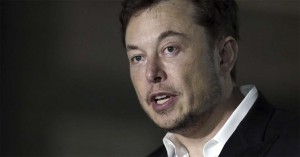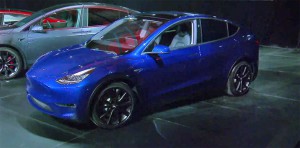Less than two weeks after saying Tesla likely would not seek to raise more money even though the time was right, CEO Elon Musk led the charge to raise $2.3 billion to bolster the California-based EV maker’s cash reserves.
The company launched issues of new shares and debt worth about $2.3 billion on Thursday, with Musk adding $10 million of his own as investors and analysts wondered how the company would be able to meet all of its goals without the extra cash.
In a filing with the Securities and Exchange Commission filing, the EV maker said it plans to raise $650 million through new shares and tap the debt markets for an additional $1.35 billion. The underwriters have the option to buy an additional 15% of each offering, which would bring the total to $2.3 billion.
The company has a lot on its plate this year with plans to increase its build numbers for the Model 3 as well as the introduction of the new Model Y sport-utility early next year as well as the company’s semi truck.
(Musk keeps job with SEC settlement — but not everyone is pleased. Click Here for the story.)
“This was a smart move by Musk and Tesla to rip the band-aid off and go to the capital markets,” said Dan Ives, Wedbush Securities analyst, in a note.

Tesla's Elon Musk said during the company's Q1 earnings call that it was a good time to go to the markets to raise cash.
“The growing worries around capital were a black cloud over the stock on the heels of the company’s troubled March results and the choppy path ahead.”
(For more on Tesla’s worse-than-expected Q1 loss, Click Here.)
The company lost about $700 million in the first quarter of this year, but Musk predicted the EV maker would be back in the black by the third quarter.
Tesla expects capital expenditures of $2 billion to $2.5 billion this year and about $2.5 billion to $3 billion annually for the next two fiscal years, according to its quarterly report. It ended its first quarter with $2.2 billion in cash.
(As Tesla readies to launch 1st hands-free vehicle, drivers warming to the idea. Click Here for more.)
Analysts said last week that the company would probably seek between $1 billion and $3 billion, according to Reuters. However, they also suggested it would cost the company more than it would have if they had done it at this time last year.

